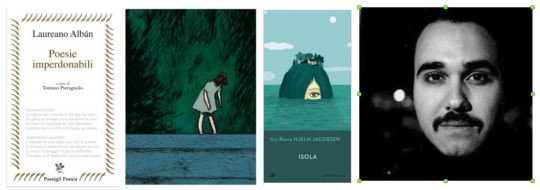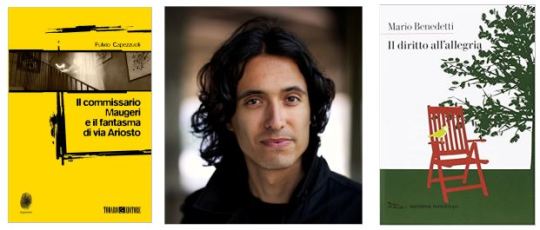#ricardo muti
Explore tagged Tumblr posts
Text
Sergei Prokofiev (1891-1953)
Prokofiev is regarded as one of the major composers of the 20th century. His works include such widely heard pieces as the March from The Love for Three Oranges, the suite Lieutenant Kijé, the ballet Romeo and Juliet and Peter and the Wolf. He created seven completed operas, seven symphonies, eight ballets, five piano concertos, two violin concertos, a cello concerto, a symphony-concerto for…
#Chamber Orchestra of Europe#Cinderella#Classical Music#Classical Symphony#Claudio Abbado#First Galop of the Prince#Gennady Rozhdestvensky#Kent Nagano#Moscow Radio Symphony Orchestra#Moscow RTV Symphony Orchestra#Paul Archibald#Peter and the Wolf#Philadelphia Orchestra#Piano Concerto No 1 in Db Major#Ricardo Muti#RTHK Radio 3#Russian National Orchestra#Sophia Loren#Symphony No. 1 in D Major#The Meeting of the Volga and the Don#Viktoria Postnikova
0 notes
Text
Birthdays 7.28
Beer Birthdays
Sharon Vaughan, Miss Rheingold 1965 (1938)
Five Favorite Birthdays
Gerald Manley Hopkins; poet (1844)
Jake Johannsen; comedian (1960)
Beatrix Potter; English writer (1866)
Rachel Sweet; pop singer (1962)
Frankie Yankovic; accordionist, polka bandleader (1915)
Famous Birthdays
Natalie Babbitt; writer, illustrator (1932)
Elizabeth Berkley; actor (1972)
Michael Bloomfield; rock and blues guitarist (1943)
Vida Blue; Oakland A's P (1949)
Ignaz Bosendorfer; piano manufacturer (1796)
Bill Bradley; New York Knicks F/G, politician (1943)
Joe E. Brown; comedian, actor (1892)
George Cummings; rock guitarist (1938)
Jim Davis; cartoonist (1942)
Marcel Duchamp; French artist (1887)
Jonathan Edwards; pop musician, songwriter (1946)
Georgia Engel; actor (1948)
Thomas Heyward Jr.; signer of the Declaration of Independence (1746)
Lori Loughlin; actor (1964)
Ricardo Muti; classical conductor (1941)
Jacqueline Bouvier Kennedy Onassis; U.S. first lady (1929)
Karl Popper; philosopher (1902)
Phil Proctor; comedian, actor (1940)
Sally Struthers; actor (1948)
Earl Tupper; Tupperware inventor (1907)
Rudy Vallee; singer (1901)
William T. Vollmann; writer (1959)
Rick Wright; rock keyboardist (1943)
1 note
·
View note
Text
Il futuro?
“Un'orchestra sinfonica oggi costa meno di un calciatore, quale eredità ci aspettiamo di lasciare ai nostri figli? La cultura non esiste per fare profitto, ma per educare. Se questo non cambia, nelle generazioni future prevarranno persone superficiali e molto pericolose”.
Ricardo Muti
Questa frase del maestro Muti è solo un esempio di lucidità su cui si dovrebbe riflettere, ma la società in cui viviamo, non solo in Italia, è sull'orlo del fallimento a livello umano perché si tende a valorizzare il superfluo e l'inutile. Ancora non siamo alla deriva totale, ma non manca molto, la frase che spesso scrivo come commento a comportamenti da primitivi è "Stiamo scivolando su un piano inclinato verso Idiocrazy", avete presente quel film geniale dove una coppia uomo/donna vengono ibernati per un esperimento militare di un anno ma si risvegliano dopo 500 anni, perché l'ufficiale in capo all'esperimento si fa coinvolgere in un giro di prostituzione e viene arrestato e l'esperimento chiuso ma loro vengono dimenticati? Il film è apparentemente demenziale a tratti molto divertente ma quello che traspare in realtà è che la società sta involvendo sempre di più, questo è reale non un film di fantasia se pur geniale. Ci sono vari aspetti che riconducono alla pellicola, come prima cosa l'impoverimento del linguaggio nelle nuove generazioni, per fare un esempio negli stati uniti (se vedi i tweet dei ragazzi americani ti rendi conto) si usano una infinità di acronimi, loro sono abituati a ridurre tutto per risparmiare tempo, ma facendo così si perde a lungo andare la proprietà delle parole; questa pratica oramai è di uso comune anche in Europa tra i giovani, anche in Italia. Premetto che non è tutto così e che ci sono giovani con la testa sulle spalle che fanno buon uso del linguaggio, ne conosco parecchi. La superficialità di cui parla Muti è segno della mancanza di interesse verso qualcuno o qualcosa, che è spesso figlia della competizione perché nello sminuire il prossimo per passare per più bravi si usano le scorciatoie del cervello, anche perché così sottovaluti il tuo avversario pratica già di per se sbagliata perché si può ritorcere contro di te quando si evidenzia il fatto che le tue sono solo parole e non fatti. La pericolosità invece l'abbiamo vista sullo stupro di gruppo a Palermo, quei bravi ragazzi non hanno empatia e per loro era un gioco, ho letto che uno diceva nella loro chat privata che cose del genere le aveva viste solo sui pornazzi, non demonizzo internet ma purtroppo quando si ha una tecnologia così potente e la si usa male può causare distorsioni mentali, appunto come quella. Ci si interroga sugli errori e si inizia a puntare il dito contro le famiglie, ma siamo sicuri che i loro genitori siano colpevoli quanto loro? Cioè non sappiamo neanche che tipo di situazione sti trogloditi hanno in casa, ma subito i giornali tutti a prendersela con mamma e papà che magari si fanno un mazzo così per dare a sti idioti un futuro migliore, di sicuro c'è altro oltre al nucleo familiare, ma non voglio scendere in particolari visto che la vicenda è abbastanza pesante, dico solo che in una nazione dove non si hanno punizioni esemplari per chi viola le leggi, non solo in questo caso, è ovvio che chiunque si prende la briga di delinquere sapendo che non gli accadrà nulla, il berlusca starà ridendo pensando di aver fatto un buon lavoro. Questo discorso è lungo e intricato, la società si è trasformata in qualcosa di completamente lontano da quello che era negli anni 80 e 90, secondo me regredendo, per via di comportamenti sempre meno umani, la competizione è l'inizio di una guerra, la disgregazione di quel tessuto sociale che ci univa attraverso la separazione sempre più piccole categorie ci ha allontanati e sappiamo che per i potenti più siamo divisi meglio è perché l'unione fa la forza, chiedetelo a Maria Antonietta. E ci sarebbe molto ma molto altro da scrivere, ma ho altro da fare e mi fermo.
1 note
·
View note
Photo

phantom thread by paul thomas anderson
behind the scenes
lighting phantom thread
production notes
daniel day-lewis interview with W
costume design
paul thomas anderson interview with rolling stones
johnny greenwood (composer) interview
johnny greenwood interview 2
supplemental reads
house of woodcock by yuna kim @ all that skate 2018
essay series by omar moore : (1) fashion and fascism (2) a boy’s best friend (3) objectification power and resistance (4) a comedy of manners and etiquette
power and pleasure by declan cochran
soundtrack influences
ricardo muti’s recording of vivaldi’s gloria (1977)
soundtrack of kubrick’s lolita by nelson riddle
nelson riddle’s work with oscar peterson
soundtrack of lean’s the passionate friends by richard addinsell
music of thomas tallis, benjamin britten, and bill evans
0 notes
Photo

Tomorrow 1/8/2022 first of four upcoming #live performances of #MigueldelAguila's new #QuintetoSinfónico by #ChicagoPhilharmonic #CSO #JenniferGunn #flute #ScottHostetler #oboe #JonathanGunn #clarinet #KeithBuncke #bassoon #DavidGriffin #horn. Performances: 1/8/2022 - two performances: 10AM and 11:45AM 2/12/2022 - two performances: 10AM and 11:45AM Info: https://cso.org/performances/21-22/cso-for-kids/once-upon-a-symphony-maybe-something-beautiful/ Here a clip: https://youtu.be/V4Wkli-k_kQ Performances as part of #OnceUponaSymphony #MaybeSomethingBeautiful
#Miguel del Aguila#Chicago Symphony#orchestra#Ricardo Muti#Wind Quintet#Quinteto Sinfonico#Chicago#Symphony hall
1 note
·
View note
Video
youtube
It was the work of Sergei Prokofiev that first brought me to our editor-in-chief’s attention on Tumblr so many years ago, so it feels right to begin winding down our final season here with a week celebrating his work. I’ve shared a lot of Prokofiev over the past few years, but for me it all comes back to Romeo and Juliet, the first piece of his I really connected with as a teenager. I’ve had Romeo and Juliet on the brain again, since watching the latest film adaptation of West Side Story, another musically brilliant adaptation of Shakespeare’s original play. But one of the things I’ve thought about a lot is how much I cared about Bernardo in the newest version of Bernstein’s masterpiece and how little I ever cared for his Shakespearean counterpart, Tybalt. So in an effort to give Tybalt his due, I thought I’d let Prokofiev do the talking, specifically the “Death of Tybalt,” played here by the Chicago Symphony Orchestra under the baton of Ricardo Muti.
More to come as the week continues! - Melinda Beasi
#Sergei prokofiev#romeo and juliet#classical music#20th century#20th century music#russian composers#ballet#scores#contemporary music#musica in extenso
7 notes
·
View notes
Video
youtube
On this day in 1805, Beethoven’s only opera, Fidelio, premiered in Vienna.
Via @EvolutionIsTrue: https://whyevolutionistrue.com/2021/11/20/saturday-hili-dialogue-361/
Beethoven, Fidelio Overture, Ricardo Muti and the Philadelphia Orchestra
6 notes
·
View notes
Text
Pierre Boulez — Vol. 19 (St. Laurent Studio)

A colleague on a collector list claims that many of the recordings Pierre Boulez made for Deutsche Gramophon were marred by engineering that drained the life out of them. The truth in this statement becomes crystal clear when comparing his 2000 version of Hector Berlioz’s dramatic symphony, Roméo et Juliette, to the 1974 concert broadcast comprising the 19th volume of Yves St. Laurent’s Boulez series. Not only is this now one of the best offerings in the estimable St. Laurent Studio catalog, it also puts many other better known recordings of Berlioz’s wild and wooly hybrid vision to shame.
It seems fair to posit that we wouldn’t have the orchestra in quite the form we know it now were it not for Berlioz and his grandiose ideas of what a Gargantuan ensemble might entail. His 1830 Symphonie Fantastique pulled out all the stops in terms of program and orchestral execution, but nine years later, with the choral innovations of Beethoven’s ninth symphony firmly in mind, Berlioz turned his attention, on a vast dramatic scale, to Shakespeare. It’s no overstatement to say that Roméo et Juliette is one of the most radical conceptions of the 19th century, and deeper exposure to its formal, structural and timbral innovations, not to mention its sublimely strange rhetoric, cements that notion. It’s neither symphony nor opera, though it has elements of both genres, but the main roles are suggested by the orchestra rather than sung. The orchestral contribution is where the November 13, 1974 concert with Boulez, contralto Helen Watts, tenor Ian Partridge, bass Jules Bastin and the BBC Symphony Orchestra is absolutely stunning. The opening fugue is meant to suggest the bustling city streets of Mantua, Montagues and Capulets deep in conflict, and from the first bristling phrases, we hear a less analytical and more involved conductor than many of his later recordings suggest, one who presents the combination of danger and the sheer excitement, the joy of living, that Berlioz’s music so often involves. Boulez builds the contrapuntal form until the open fifths in the brass slow the tempo down, the timing both inevitable and flawless, preparing for the prince’s intervention as represented by the low brass recitative.
At the other end of the emotional spectrum, there is the scene where Romeo stands outside of the Capulet residence, his loneliness contrasted with the festivities inside. A conductor like Ricardo Muti renders Romeo’s anguish, as one might expect from the somber Wagner-anticipating harmonic aesthetic, but Boulez finds many more subtleties of expression in the chromatic writing and the constantly morphing orchestration. Listen out for the oboe entrance at 1:58, which is then taken up by the strings in gloriously aching crescendo; the moment prefigures similar felicities in the finest of Boulez’s late-period recordings, also in concert, of the only completed movement from Mahler’s 10th symphony. In no other performance I know are the complexities of Romeo’s humanity at that crucial juncture so vividly portrayed, rendering the ensuing celebratory music inside the Capulet ballroom all the more bitterly poignant. Boulez brings a similar energetic grit to the Queen Mab scherzo, with its dizzyingly high strings and dexterous flute writing in stark relief, all aided by the raw vitality of the concert experience. Then, there is the gorgeous love scene, beginning with double chorus as the Capulets depart from the party, expertly performed if not as stereophonically detailed as in Leonard Slatkin’s recent version, a double chorus feature which transitions into the balcony scene, again represented by orchestra alone. The Beethoven’s Ninth allegiance is particularly evident in the opening sonority, which Boulez realizes in astonishing pianissimo, but the real treat is the delicious blending of layered strings and winds, complete with pizzicato basses, as he slowly combines textural build and subtle tempo fluctuation, ratcheting up the Romanticism to boiling point. Obviously revelling in the composer’s gift for melody, as did Wagner, Boulez doesn’t miss a phrase in what is really a symphonic poem anticipating Franz Liszt’s coinage of the term. In Boulez’s hands, the combined effect of string recitative, winds response, daring harmonic writing and equally innovative juxtapositions in mood and orchestration demonstrates how far ahead of his time the French composer really was. If further proof were needed, the staggering contrast during Romeo’s internal struggle at Juliet’s tomb makes the case. The myriad pauses, sudden shifts in sonority and violent outbursts render the orchestra a unified voice, especially under Boulez’s direction.
None of this is to denigrate the vocalists’ performances. Helen Watts’ rich and dark voice rises majestically above the choral recitative as the plot is elucidated in the prologue, and particularly effective is Bastin’s warm-blooded contribution as Friar Laurence, imbuing the finale with a healthy balance of heft and wisdom. In fact, the finale may be among the most sumptuous versions on record, a fitting foil to the frenetic fugal opening as all forces are united. Here, the instrumental and vocal ensembles’ deployment across the soundstage is as vivid as could be desired, leading to well-deserved applause. Though neither text nor translation is included, they are easily found online. Of course, fans of the St. Laurent Boulez series will not hesitate, but for anyone looking for another version of this relatively unknown and prescient opus to adorn your shelves, alongside those vintage contributions from Charles Munch, Pierre Monteux and Sir Colin Davis, look no further!
Marc Medwin
2 notes
·
View notes
Link
Complete video of “Aida” with Anna Netrebto at Salzburg Fetival conducted by Ricardo Muti

0 notes
Link
Casi como dirigir el tránsito
Ricardo Muti es italiano, director de orquesta, y ante todo, un hombre con un exquisito sentido del humor. Quienes lo han visto dirigir, han disfrutado de la excelencia de su arte (no en vano fue director musical del teatro de la Scala de Milán por casi veinte años).
Quienes no, pueden comenzar por este video.
MR
0 notes
Text
Birthdays 7.28
Beer Birthdays
None Known
Five Favorite Birthdays
Gerald Manley Hopkins; poet (1844)
Jake Johannsen; comedian (1960)
Beatrix Potter; English writer (1866)
Rachel Sweet; pop singer (1962)
Frankie Yankovic; accordionist, polka bandleader (1915)
Famous Birthdays
Natalie Babbitt; writer, illustrator (1932)
Elizabeth Berkley; actor (1972)
Michael Bloomfield; rock and blues guitarist (1943)
Vida Blue; Oakland A's P (1949)
Ignaz Bosendorfer; piano manufacturer (1796)
Bill Bradley; New York Knicks F/G, politician (1943)
Joe E. Brown; comedian, actor (1892)
George Cummings; rock guitarist (1938)
Jim Davis; cartoonist (1942)
Marcel Duchamp; French artist (1887)
Jonathan Edwards; pop musician, songwriter (1946)
Georgia Engel; actor (1948)
Thomas Heyward Jr.; signer of the Declaration of Independence (1746)
Lori Loughlin; actor (1964)
Ricardo Muti; classical conductor (1941)
Jacqueline Bouvier Kennedy Onassis; U.S. first lady (1929)
Karl Popper; philosopher (1902)
Phil Proctor; comedian, actor (1940)
Sally Struthers; actor (1948)
Earl Tupper; Tupperware inventor (1907)
Rudy Vallee; singer (1901)
William T. Vollmann; writer (1959)
Rick Wright; rock keyboardist (1943)
0 notes
Text
Hugo Marchand © James Bort
The Ravenna Festival was founded in 1990 by Cristina Mazzavillani Muti, with a rich programme which includes symphonic and chamber music, opera, drama, dance, ballet, musical theatre, jazz, and ethnic music.
It’s the perfect location for a summer festival as Ravenna is a stunningly beautiful city, with eight UNESCO World Heritage sites including its stunning gilded basilicas encrusted with the famous ancient mosaics, and also because it only takes only quarter of an hour to drive to the beaches and pine forest.
Opening the festival on 5 June this year was Mazzavillani’s husband, Riccardo Muti, conducting the Orchestra Giovanile Luigi Cherubini with Maurizio Pollini, and closing it on 16 July is Daniele Cipriani’s Les Étoiles gala: a mosaic of dance in the city of mosaics.
The dancers come from Korea, France, Italy, Kazakhstan, Russia, Spain, America representing ballet companies also in Hungary and Holland:
Dorothée Gilbert and Hugo Marchand (Paris Opera Ballet) Jacopo Tissi and Alena Kovaleva (Bolshoi Ballet) Bakhtiyar Adamzhan (Astana Opera, Kazakhstan) Tatiana Melnik (Hungarian National Ballet) Constantine Allen, Anna Tsygankova, Young Gyu Choi and Rebecca Storani (Dutch National Ballet) Sergio Bernal (Spanish National Ballet)
Les Étoiles 16 July 2019 at 21.30 at the Palazzo Mauro de André
Sergio Bernal, The Swan, Les Etoiles 2019 © Malcolm Levinkind
Jacopo Tissi and Alena Kovaleva © Cristiano Castaldi
Constantine Allen
Anna Tsygankova with Jozef Varga in Swan Lake © Graham Spicer
Programme: Les Étoiles, Ravenna 2019
FIRST PART
Diamonds (from “Jewels”) ©The George Balanchine Trust Choreography George Balanchine Music Pyotr Ilyich Tchaikovsky
with Alena Kovaleva and Jacopo Tissi
Esmeralda Choreography Marius Petipa (from Jules Perrot) Music Cesare Pugni
with Dorothée Gilbert and Hugo Marchand
Flames of Paris (pas de deux) Choreography Vasili Vainonen Music Boris Asafyev
with Rebecca Storani and Young Gyu Choi
Le Corsaire (pas de deux Act II) Choreography Marius Petipa Music Riccardo Drigo
with Tatiana Melnik and Bakhtiyar Adamzhan
Zapateado de Sarasate Choreography Antonio Ruiz Soler Music Pablo de Sarasate
with Sergio Bernal
Swan Lake (Black Swan pas de deux, Act III) Choreography Marius Petipa Music Pyotr Ilyich Tchaikovsky
with Anna Tsygankova and Constantine Allen
INTERVAL
Anna Tsygankova with Jozef Varga in Duet © Graham Spicer
Dorothée Gilbert
Bakhtiyar Adamzhan and Tatiana Melnik in Diana and Actaeon, Les Etoiles 2019 © Malcolm Levinkind
Young Gyu Choi © Altin Kaftira
SECOND PART
The Swan Choreography Ricardo Cue Music Camille Saint-Saëns
with Sergio Bernal
Amovéo Choreography Benjamin Millepied Music Philip Glass Costumes Benjamin Millepied and Paul Cox
with Dorothée Gilbert and Hugo Marchand
Diana and Actaeon (pas de deux) Choreography Agrippina Vaganova Music Riccardo Drigo
with Rebecca Storani and Young Gyu Choi
Duet Choreography Christopher Wheeldon Music Maurice Ravel
with Anna Tsygankova and Constantine Allen
Grand Pas Classique Choreography Victor Gsovsky Music Daniel Auber
with Alena Kovaleva and Jacopo Tissi
Don Quixote (pas de deux, Act III) Choreography Marius Petipa Music Ludwig Minkus
with Tatiana Melnik and Bakhtiyar Adamzhan
Défilé Music Riccardo Drigo
Les Étoiles dance gala closes the 2019 Ravenna Festival The Ravenna Festival was founded in 1990 by Cristina Mazzavillani Muti, with a rich programme which includes symphonic and chamber music, opera, drama, dance, ballet, musical theatre, jazz, and ethnic music.
#Benjamin Millepied#Christopher Wheeldon#Daniele Cipriani#George Balanchine#Jacopo Tissi#Marius Petipa#Sergio Bernal
1 note
·
View note
Text

Zuerst:»Verdi-Oper mit N-Wort: Aber Ricardo Muti lehnt politisch korrekte Zensur ab http://dlvr.it/ST24Zj «
0 notes
Text

Мути Рикардо | Ариозо https://arioszo.ru/muti-ricardo/
1 note
·
View note
Photo


Preparations for upcoming #ChicagoSymphonyOrchestra’s #CSO short #film debut featuring #QuintetoSinfonico
Premiere: 1 April at 10am CT, hosted by #CCT and the #CSO.
#MaybeSomethingBeautiful, a co-production of #ChicagoChildrensTheatre and the #CSO is Inspired by award-winning book by #IsabelCampoy & #TheresaHowell, which follows young protagonist #Mira who one day decides to paste her drawing of a sun on one of the dark walls of an alley, bringing brightness and smiles to her neighbors. The 13-minute film streams on:
Facebook on 1 April - 10 am C:
https://m.facebook.com/events/279450623586764
and will later be available for free on two streaming platforms:
CSOtv: https://cso.org/tv - and on:
CCTv: https://www.youtube.com/channel/UClI9nwq0sLwmxnSC8xvN9lw
#QuintetoSinfónico was premiered by #Pentaedre #Quintet
#cso#chicago symphony orchestra#miguel del aguila#ricardo muti#music director#quinteto sinfonico#maybe something beautiful
0 notes
Text
Letture Mondiali
Nonostante l’assenza dell’Italia, qualcuno non ha perso nemmeno un minuto del mondiale in corso perché ama il calcio chiunque lo giochi; qualcuno è invece troppo tifoso degli azzurri per sopportare una competizione senza la nostra nazionale; e poi c’è chi i mondiali li ha sempre mal sopportati e vive con sollievo l'assenza di caroselli per le strade in caso di vittoria. A qualunque categoria apparteniate, se ci seguite siete lettori. E per voi, ispirandoci ai 32 paesi partecipanti a Russia 2018, abbiamo selezionato altrettanti titoli e autori presenti nel nostro catalogo. Una selezione senza intenti competitivi, pensata solo per fornirvi alcuni suggerimenti di lettura per l’estate, magari fuori dai vostri percorsi abituali.

Partiamo allora per il nostro giro del mondo, rigorosamente dalla A all'Uruguay!
Non è così usuale leggere autori dell'Arabia Saudita. Rose d’Arabia è una raccolta di autrici saudite pubblicata nel 2001. Più recente è Il collare della colomba di Raga Alim, prima donna vincitrice dell’Arabic Booker Prize: riprendendo il titolo di un trattato arabo sull'amore e gli amanti, una storia di misteriosi intrighi all'ombra della Mecca. Grande narratore del calcio è Osvaldo Soriano (Pensare con i piedi è altra raccolta da non perdere!). Vogliamo però ricordare un altro autore che l'Argentina ci ha regalato e che è scomparso nel 2017: Ricardo Piglia. Sceneggiatore, autore di thriller (Solo per Ida Brown è il suo romanzo estremo) ma anche acuto osservatore del mondo della lettura ne L'ultimo lettore.
L'Australia è stata spesso raccontata attraverso storie di immigrazioni provenienti dal dall'Europa. Ne L'età d'oro di Joan London è una famiglia ungherese sopravvissuta all'olocausto ad arrivare nel continente australe e a dover affrontare le grandi problematiche legate all'integrazione: emarginazione, desiderio di accettazione, ricerca e costruzione della propria identità.

Qualcosa di misterioso conduce la protagonista di Si scioglie a tornare a Bovenmeer, piccola cittadina del Belgio dove ha trascorso la sua adolescenza insieme agli unici due altri nati lì nel 1988; nel bel romanzo di esordio di Lize Spit, però, nemmeno quell'antica amicizia ha la forza di essere un rifugio.
L'attrice Fernanda Torres ha debuttato nella scrittura con Fine, romanzo incentrato su cinque uomini che hanno vissuto gli anni d'oro del Brasile, anni in cui Copacabana era terra di eccessi, feste e musica. Ma cosa sono diventati quei cinque uomini con il passare degli anni?
Gabriel Garcia Marquez fece una scommessa con Alvaro Mutis: scrivere un racconto gotico ambientato ai Caraibi era l'unica cosa impossibile. Mutis lo scrisse e La casa di Araucaìma fu pubblicato in Colombia più di 40 anni fa insieme ad altri racconti, tra cui Diario di Lucumberre, scritto durante un periodo di prigionia dell'autore.
Uno degli episodi più dolorosi della storia moderna della Corea del Sud è al centro di Atti umani di Han Kang. La strage di Gwangju risale al 1980 ma ancora oggi molto di quel tragico atto di violenza politica resta sconosciuto. Attraverso questo romanzo polifonico Kang vuole dare voce a chi, da allora, non ha più potuto averla.

Se tra le vostre mete di vacanza c'è la Croazia e amate i gialli Silenzio elettorale di Drago Hedl può essere la lettura giusta. Importante giornalista investigativo, l'autore sembra omaggiare la Millennium Trilogy di Stieg Larsson accompagnandoci nella società croata con una scrittura che tradisce la sua felice formazione giornalistica.
Siri Ranva Hjelm Jacobsen ne L'isola evoca invece la struggente nostalgia di una ragazza la cui famiglia si è trasferita decenni prima dalle Far Oer alla Danimarca e il suo desiderio di ritrovare quella che sente come la “casa” delle proprie origini pur non avendola mai vista né conosciuta.
1988: per la prima volta un egiziano, Mahfuz, vince il Nobel. Da allora l'attenzione sulla letteratura egiziana è molto cresciuta. Ma la vita degli scrittori in Egitto non è sempre facile: Ahmed Naji nel 2016 è finito in carcere per alcuni mesi perché un capitolo del suo Vita: istruzioni per l'uso è stato ritenuto osceno.
Vive in Francia ma è nato in Russia: Andreï Makine è il nome perfetto per questa piccola rassegna ispirata al mondiale. Cuore della sua narrazione è sempre stata l'epoca sovietica, dallo stalinismo alla perestrojka; ne L'arcipelago della nuova vita il suo racconto si spinge fino all’estremo confine orientale della Russia dove è ambientata questa avvincente caccia all’uomo.

Cosa avrà pensato Thomas Mann prima di pubblicare il suo j'accuse contro il regime nazista? Britta Böhler ricostruisce tre giorni della vita del grande autore tedesco nel suo La decisione. Un appuntamento cruciale per il grande intellettuale del secolo scorso con la storia della Germania e del mondo.
Nella palestra di una scuola in Giappone il giovane Tamura ascolta un accordatore di pianoforti. L'illuminazione è tale che la ricerca di quel suono così perfetto da evocare un mondo intero diventerà il centro dell'esistenza del protagonista di Un bosco di pecore e acciaio di Natsu Miyashita.
Il Man Booker Prize è uno dei più importanti premi letterari dell'Inghilterra (e del mondo). Per celebrare i suoi 50 anni è stato ideato il Golden Man Booker Prize selezionando un titolo per ciascun decennio: In uno stato libero di Naipaul; Una spirale di cenere, della Lively; Il paziente inglese di Ondaatje; Wolf Hall di Hilary Mantel e Lincoln nel bardo, George Saunders. Avete già un preferito?
Brioschi, editore di Milano, ha recentemente tradotto alcuni romanzi di autrici provenienti dall'Iran; segnaliamo volentieri questa interessante finestra sulla letteratura (in particolare femminile) persiana contemporanea presente con cinque romanzi nel nostro catalogo.

Tutti sembrano desiderare di visitare l’Islanda. In Hotel Silence di Auður Ava Ólafsdóttir il protagonista è invece un islandese che programma di lasciare l'isola per farla finita con una vita in cui non trova più senso. Ma il romanzo, a dispetto del punto di partenza, è un inno alla capacità della vita di offrirci occasioni di riconciliazione e rigenerazione.
Nell'anno in cui gli americani arrivarono sulla luna in Marocco c'è un bambino che fa un viaggio più o meno simile: dalle montagne del Medio Atlante ad una scuola di Casablanca, da una famiglia legata a tradizioni secolari ad una moderna scuola à la française. È il protagonista di Un anno con i francesi di Fouad Laroui.
Scrittore e sceneggiatore di culto (21 grammi, Babel, Amores perros sono film di cui è autore), Guillermo Arriaga ci porta con Il selvaggio in un Messico violento e feroce. È qui che negli anni '60 le vicende dei giovani Juan Carlos e Amaruq si intrecciano, tra spirali di morte e le poche ma preziose possibilità di riscatto che la vita offre loro.

Diventata icona mondiale della lotta contro il sessismo e il razzismo Chimamanda Ngozi Adichie in Quella cosa intorno al collo raccoglie 12 racconti di donne tra Nigeria e gli Stati Uniti. Donne che, nell'inseguire i propri sogni, i propri desideri o semplicemente una vita migliore, devono venire a patti con una realtà che spesso chiede in cambio la rinuncia alla propria dignità.
Rarissimi gli autori di Panama che vengono tradotti in Italia e in Europa. Ma anche in questo caso il nostro catalogo permette di conoscere un romanzo molto celebre in patria: Il giardino di Fuyang di Rosa Maria Britton. Se pensate che un solo titolo sia poco per farsi un'idea della letteratura panamense sappiate che il sottotitolo recita: “o come si scrive a Panama”.
Pensare al Perù e pensare a Mario Vargas Llosa è quasi automatico. Quando nel 1965 venne pubblicato Niente miracoli ad Ottobre di Oswaldo Reynoso fu proprio Vargas Llosa uno dei pochi difensori del romanzo, dai più ritenuto scandaloso e offensivo. In Italia è stato pubblicato solo nel 2015. Turberà ancora i lettori?

A proposito di narrazioni perturbanti, nel 2017 è stato ripubblicato Cosmo. Ultimo romanzo di Witold Gormbowicz, è un’opera che accoglie in maniera mirabile tutti temi centrali di questo autore che, nato in Polonia, si trovò a vivere in sudamerica e a morire in Francia: ossessioni, una società grottesca, il rapporto tra giovinezza e vecchiaia, tra noia e creazione.
Dal Portogallo arriva un originale romanzo di fantascienza ambientato in un futuro distopico: ne L'ultimo europeo Miguel Real ha immaginato un'Europa frammentata e imbarbarita del 2284 dove recuperare l'uso dell'inchiostro e della scrittura manuale diventa azione politica di importanza capitale.
I fragili e contraddittori equilibri dei confini della Russia sono il tema de La montagna in festa di Alisa Ganieva: cosa succederebbe se, da un giorno all’altro, si innalzasse un muro tra le regioni del Caucaso e il resto della federazione? Prova ad immaginarne le conseguenze l'autrice che in una di quelle regioni, il Daghestan, è nata.
Ad aprile ha compiuto 90 anni Cheikh Hamidou Kane autore, ormai quasi sessanta anni fa, de L'ambigua avventura. Tra tanti libri recenti proponiamo questo libro a rappresentare il Senegal perché affronta il tema della migrazione africana al tempo della decolonizzazione ed è a tutt'oggi considerato un testo fondamentale della letteratura africana.

Il muro del Nord di Dragan Velikic ha per protagonista una bibliotecaria che durante la Grande guerra fugge dalla Serbia verso la Vienna, incontrando sul suo cammino niente meno che James Joyce! Storia di esilio che sembra ricalcare tanti esili della storia.
Patria ha consacrato Fernando Aramburu come una delle voci letterarie più interessanti della Spagna di oggi. In attesa che vengano tradotti altri suoi lavori una curiosità: Vita di un pidocchio chiamato Mattia è un romanzo per ragazzi in cui l'autore trasforma il pidocchio protagonista in una perfetta metafora della convivenza civile.
Celebratissimo per i suoi gialli, Henning Mankell nel 2001 scrisse Le ragazze invisibili, uscito in Italia solo dopo la morte dell'autore. Protagonista è un poeta ormai demotivato che ritrova le ragioni più profonde della sua arte nell'incontro con alcune donne emigrate in Svezia senza più passato e con un futuro incerto.

Per la serie: forse non tutti sanno che: ha sede in Svizzera l'editore di una serie di romanzi gialli ambientati a Milano che molti nostri lettori dimostrano di apprezzare. Le indagini del commissario Maugeri di Fulvio Capezzuoli sono infatti realizzate dalle Edizioni Todaro di Lugano.
Qualche giorno fa, proprio ispirandosi al mondiale, il sito arablit.org ha immaginato una rappresentativa composta da 23 autrici ed autori viventi della Tunisia. Solo tre sono pubblicati in Italia e tutti sono presenti nel nostro catalogo: Shams Nadir, Albert Memmi e Habib Selmi. "Convocato" anche Jonas Hassen Khemiri, svedese di origini tunisine.
In Uruguay è nato uno dei maggiori narratori del calcio: Eduardo Galeano. Ma anche Mario Benedetti, figlio di immigrati italiani scomparso nel 2009. In Italia nel 2017 è uscito per la prima volta Il diritto dell'allegria: una raccolta di scritti, pensieri e riflessioni che ci ricordano l'importanza dell'allegria come balsamo per l'anima.

1 note
·
View note